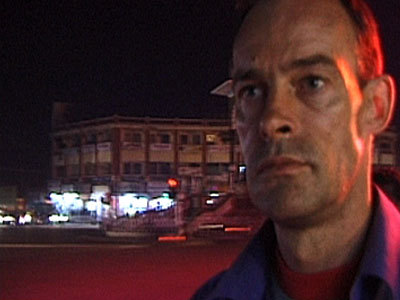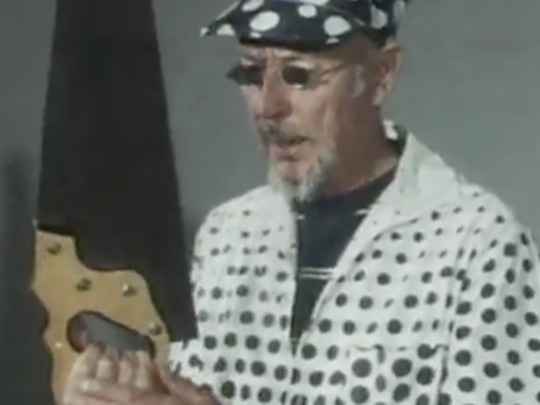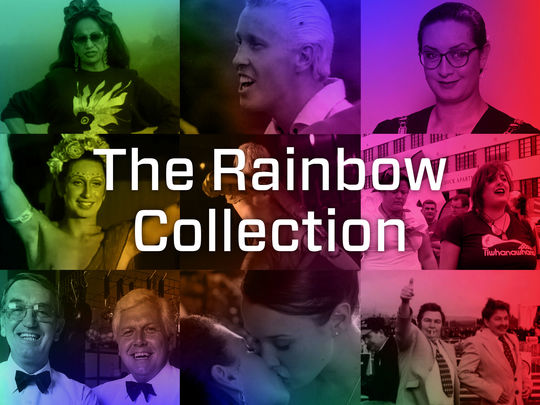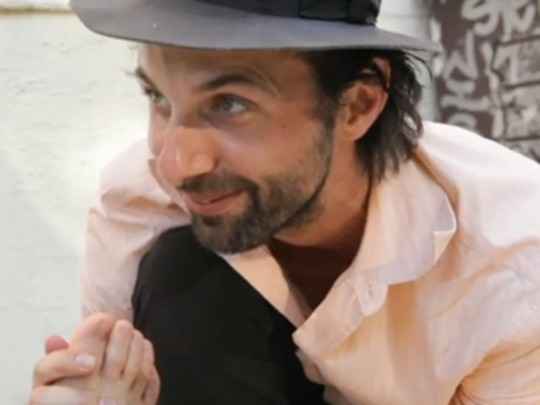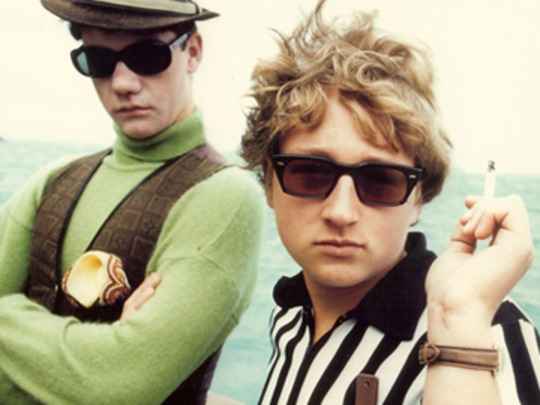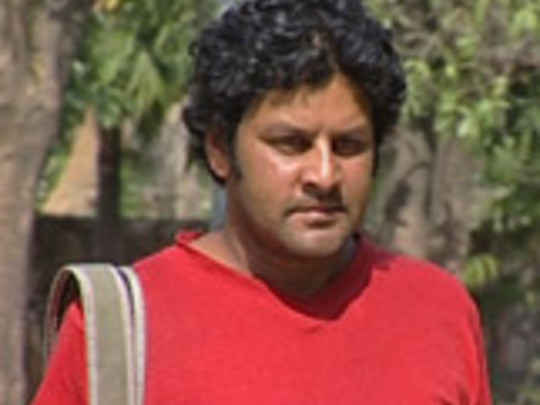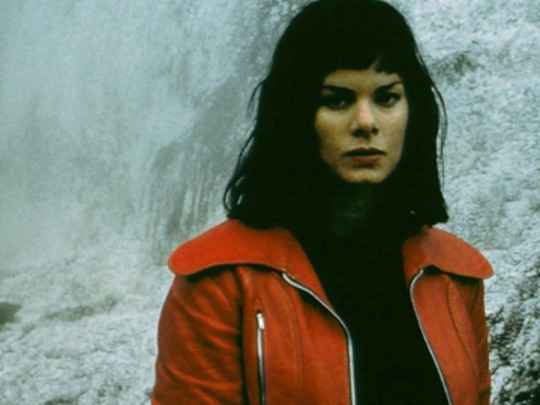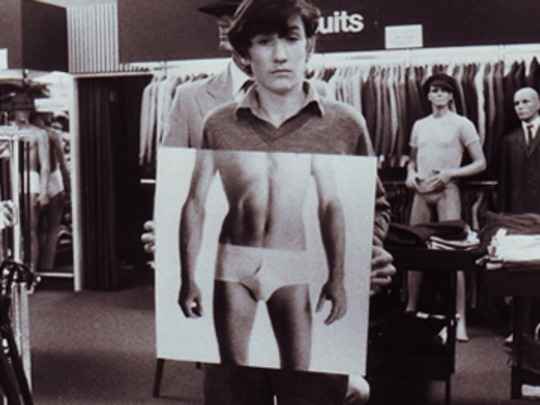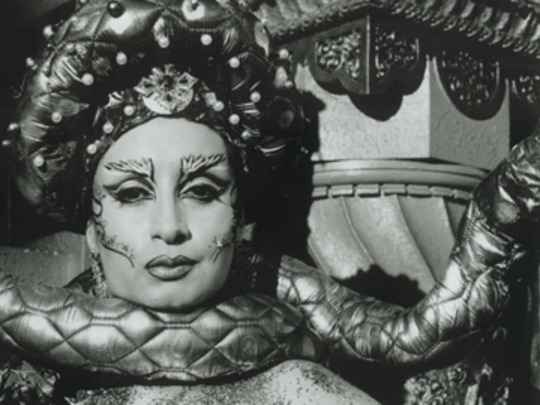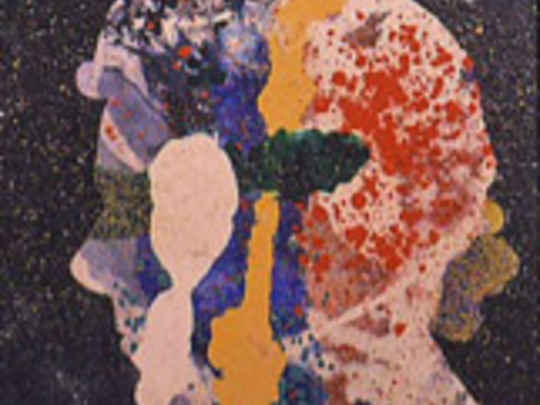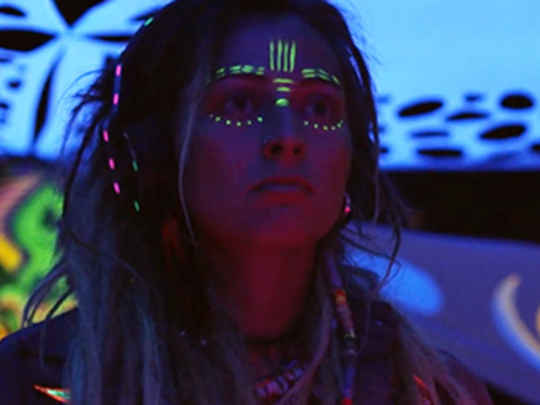God, Sreenu and Me
Television (Full Length) – 2000
A Perspective
"My intention has been to make [this doco] into an act of devotion, that will somehow sanctify me or bless those who gain enjoyment from it. But maybe you see it as a travesty, or a caprice, a pretentious lie, or even a blasphemy."
— Director Stewart Main.
A spiritual odyssey on TV is a rare thing. And like most pilgrimages, this one took a circuitous route. Having recently broken up with long-time lover Peter Wells, director Stewart Main was "bumming around India" for a year.
He and producer Michele Fantl pitched the idea of interviewing Kiwis who had found enlightenment in India to head of commissioning Geoff Steven, for TVNZ's Work of Art series. Director of photography Craig Wright and a local sound recordist, Sreenu, spent five weeks with Main travelling across India. But when Steven saw the edit, he told Main to make himself the focus instead.
Main dreads appearing on camera, so very little footage existed of himself. Nevertheless, from these "scraps and off-cuts" he fashioned a feature-length story in which he plays a character called Stewart Main who goes to India in search of enlightenment. In other words, it's a joke.
Main is an atheist, and in his voiceover declares that instead of God, "I look for my redemption in sex and work." Soon God takes a back seat to Main's fantasies about the handsome young Sreenu. As the sound recordist never expected to be in the documentary and there was even less footage of Sreenu than Main, this is quite an achievement.
Yet it can be confronting for those who equate "objectivity" with "truth". Which is exactly the point - as a gay filmmaker Main long ago learnt to distrust mainstream norms.
He has often used irony to engage mainstream topics — whether it's sexual awakening in his short drama My First Suit or New Zealand history in Desperate Remedies. In his 1986 "poetic documentary" about east Timor, Captive State, he used fake people to tell a real story. In God, Sreenu and Me he uses real people to tell a fake story.
Australian audiences saw through to the joke ("ironic, playful and true" wrote John Hughes of Australia's Metro Magazine). But New Zealanders weren't so sure ("a boldly narcissistic piece in which Stewart Main goes to India looking for God and ends up mainly exploring the interior of his trousers" wrote Diana Wichtel in the NZ Listener).
Main describes being in India as a "stream of consciousness", and wanted to evoke that for viewers. He mixes multiple picture tracks with trance-like recordings from the 1940s, 50s and 60s by one the most famous playback singers in the Hindi film industry, Lata Mangeshkar. Over the top he laid a headspinning voiceover of self-revelations, narrative red-herrings and mock spiritual insights.
The result is one of the visually and aurally richest documentaries ever made in NZ. In fact, Main is such a provocative filmmaker that even his spiritual mockumentary becomes something like the real thing. As the ex-pat seekers rave on about resisting the life of the senses, Main turns images of pilgrims bathing in the Ganges in early morning light into a celebration of the male body.
In his voiceover he asks: "Am I a whore to love and beauty?"
The doco's sensual imagery, music and hallucinogenic visual effects add up to a resounding yes.
